26th. Turned over some commissary stores to the 4th and 9th Wisconsin, who came in that evening. Wrote to Fannie. Another false alarm. Citizens expected an attack.
American Civil War Chronicles
Village Life in America
June 26, 2022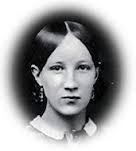
June. – I visited Eureka Lawrence in Syracuse and we attended commencement at Hamilton College, Clinton, and saw there, James Tunnicliff and Stewart Ellsworth of Penn Yan. I also saw Darius Sackett there among the students and also became acquainted with a very interesting young man from Syracuse, with the classic name of Horace Publius Virgilius Bogue. Both of these young men are studying for the ministry. I also saw Henry P. Cook, who used to be one of the Academy boys, and Morris Brown, of Penn Yan. They talk of leaving college and going to the war and so does Darius Sackett.
0
June 26, 2022
JUNE 26th.—To-day a letter, hastily written by Gen. Lee to the Secretary of War, stated that his headquarters would be at _______, or beyond that point, whence couriers could find him if there should be anything of importance the Secretary might desire to communicate during the day. This is the day of battle! Jackson is in the rear of McClellan’s right wing! I sent this note to the Secretary at once. I suppose Mr. Randolph had been previously advised of Gen. Lee’s intention to fight to-day; but I do not know it. I know some of the brigadier-generals in the army do not know it; although they have all been ordered to their commands. This is no uncommon order; but it is characteristic of Lee’s secretiveness to keep all of his officers in profound ignorance of his intentions, except those he means to be engaged. The enemy cannot possibly have any intimation of his purpose, because the spies here have no intelligence; and none are permitted to pass the rear pickets in sight of the city without my passport. What a change since the last battle!
To-day, in compliance with an intimation of the President, all in the departments, who felt so disposed, formed a military organization for the defense of the city, and especially of the archives, which had been brought back since the assumption of command by Gen. Lee. Col. Bledsoe denounced the organization as a humbug! Defending the government, or readiness to defend it, in such times as these, is no humbug! In the fluctuations of a great battle, almost in the suburbs of the city, a squadron of the enemy’s horse might penetrate even to the office of the Chief Executive, when a few hundred muskets, in the hands of old men and boys, might preserve the papers.
After dinner I repaired, with Custis and a few friends, to my old stand on the hill north of the Jews’ Cemetery, and sat down in the shade to listen. Many persons were there as usual—for every day some firing could be heard—who said, in response to my inquiries, that distant guns had been heard in the direction of the Pamunky River.
“That is Jackson!” I exclaimed, as the sounds were distinctly discerned by myself; “and he is in their rear, behind their right wing!”
All were incredulous, and some doubted whether he was within a hundred miles of us. But the sounds grew more distinct, and more frequent, and I knew he was advancing. But how long could he advance in that direction without being overwhelmed? Everywhere else along the line a deathlike silence reigned, that even the dropping fire of the pickets, usually so incessant, could be heard.
This suspense continued only a few minutes. Two guns were then heard northeast of us, and in such proximity as to startle some of the anxious listeners. These were followed by three or four more, and then the fire continued with increasing rapidity. This was Gen. A. P. Hill’s division in front of the enemy’s right wing, and Lee’s plan of battle was developed. Hill was so near us as to be almost in sight. The drums and fifes of his regiments, as they marched up to the point of attack, could be easily heard; how distinctly, then, sounded his cannon in our ears! And the enemy’s guns, pointed in the direction of the city, were as plainly discerned. I think McClellan is taken by surprise.
One gentleman, who had been incredulous on the subject of a battle to-day, held his watch in his hand ten minutes, during which time one hundred and ninety guns were heard. Saying he believed a battle was in progress, he replaced the watch in his pocket, and sat down on the ground to listen.
Another hour, and the reports come with the rapidity of seconds, or 3600 per hour! And now, for the first time, we hear the rattle of small arms. And lo! two guns farther to the right,—from Longstreet’s division, I suppose. And they were followed by others. This is Lee’s grand plan of battle: Jackson first, then Hill, then Longstreet—time and distance computed with mathematical precision! The enemy’s balloons are not up now. They know what is going on, without further investigations up in the air. The business is upon earth, where many a Yankee will breathe his last this night! McClellan must be thunderstruck at this unexpected opening of a decisive battle. Our own people, and even our own general officers, except those who were to participate in the attack, were uninformed of Lee’s grand purpose, until the booming of Jackson’s guns were heard far on our left.
As the shades of evening fall, the fire seems to increase in rapidity, and a gentle breeze rising as the stars come out, billows of smoke are wafted from the battle-field. And now, occasionally, we can distinctly see the bursting of shells in the air, aimed too high by the enemy, and exploding far this side of our line of battle.
Darkness is upon us, save the glimmer of the stars, as the sulphurous clouds sink into the humid valleys. But the flashes of the guns are visible on the horizon, followed by the deep intonations of the mighty engines of destruction, echoing and reverberating from hill to hill, and through the vast valley of the James in the rear.
Hundreds of men, women, and children were attracted to the heights around the city to behold the spectacle. From the Capitol and from the President’s mansion, the vivid flashes of artillery could be seen; but no one doubted the result. It is only silence and inaction we dread. The firing ceased at nine o’clock p.m. The President was on the field, but did not interfere with Lee.
I heard such noise as I had never heard before.
June 26, 2022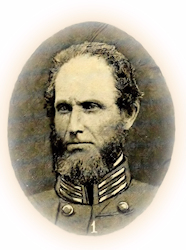
Thursday, June 26th
I was sick in my tent. Before day I heard such noise as I had never heard before. Everything in motion, troops, troops, wagons, wagons, artillery, artillery. Heard cannons from 5 p. m. to 6 p. m., 30 per minute; at 7:30, 40 per minute. Too unwell to go to my men. Heard constant musketry. Oh, that I could be there to comfort the wounded and dying, and to encourage the fighting.
…escaping from Stonewall Jackson!
June 26, 2022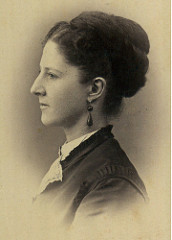
Eliza Woolsey Howland’s Journal.
. . . June 26th. Running away down the Pamunkey again as fast as we can go, escaping from Stonewall Jackson!
All night the wood choppers were at work cutting down the woods at the White House to give the gunboats a chance to command the land beyond, and just now as we passed, the banks were shorn and the pretty little place laid bare. The pickets had been driven in, and Jackson was supposed to be close at hand. Eighty wounded were brought down last night and put on board the Knickerbocker. Twelve more and a few sick came down this morning. The Whilldin follows us, nearly full of sick and wounded.
The rumor to-day is that all communication with the front is stopped, to conceal an advance of our army.
Journal of Surgeon Alfred L. Castleman.
June 26, 2022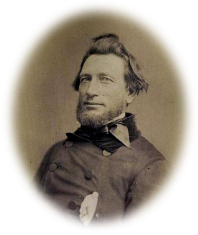
26th.–The forenoon of to-day passed something as did the afternoon of yesterday. Asked for transportation to bring my tents and baggage from Liberty Hall. Cannot have it till to-morrow; so, having nothing to eat, nor any place to shelter, have lived on the kindness of my friends.
About 2 o’clock P. M., ” Stonewall Jackson” and General Ewell, from the North, and Generals Lee, Longstreet and Hill, from Richmond, having united their forces to the number (reported) of about one hundred thousand, made an attack on General McCall’s division, which was strongly posted and fortified about a mile and a half east of Mechanicsville, on the left bank of the Chickahominy. This is about four miles from where we are encamped on the right of the river. The fight was severe, every musket and artillery shot being distinctly heard at our quarters. Our excitement, during the whole of the afternoon, has been intense. The firing ceased at about 9 o’clock in the evening. A few minutes later, orderlies and aids-de-camp were dashing from regiment to regiment, reading a dispatch from General McClellan, that “Stonewall Jackson is thoroughly whipped.” Great rejoicing and cheering in camps. But, strange–one regiment to whom it was read, never, during the whole excitement, raised a cheer or manifested one symptom of elation. That regiment is the Fifth “Wisconsin Volunteers. It has been under General McClellan’s personal friend and relative, Brigadier General Winnfield Scott Hancock, for whom it has won whatever of reputation that Brigadier General claims to have. Can it be possible that this favorite regiment has so far lost its confidence in the Brigadier as to distrust the statement of his friend, the Commander-in-Chief? However this may be, I have heard several of them remark that “it will be time for us to cheer when we know it is true.” Significant.
“…he hears such favorable accounts of the state of affairs here that he is going to send 300 of his worst cases for us to care for.”
June 26, 2022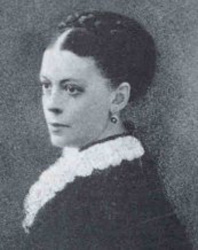
Sarah Chauncey Woolsey to Georgeanna Muirson Woolsey.
Linen Room, New Haven Hospital,
June 26th, ’62.
My dearest G.: A lull in business gives me a chance to write a few lines to you and tell you how glad I was last night to find your letter waiting for me when I got home from my day here. . . . What wonder that you have not written when I have never found time to write until after ten o’clock at night. . . . One of my pets here among the men is sure that you and Eliza are the ladies who were in a large tent on shore at White House, and brought him some bowls of bread and milk and swigs of strong drink of some kind. He was so interested to make sure of the point that I promised to bring up your picture for him to see and compare with his recollections. . . . The Surgeon-General has written to Dr. Jewett to say that he hears such favorable accounts of the state of affairs here that he is going to send 300 of his worst cases for us to care for. Inspector-General Hammond is coming on Saturday to see with his own eyes, and we are to be swept and garnished for his benefit. Mrs. Hunt (“H. H.”) helps me here often; mends clothes by the hour and comes for three days during the week to write letters for the men. . . . My fortnight’s experience here convinces me that I could soon acquire the art of keeping, not an “Hotel,” but a small country variety store. There is the same run of customers, the taking of stock, the arranging of the goods, the sweeping-up and closing of the shutters at night. My stock comprises almost everything–shirts and collars, cravats and suspenders, coats and trousers, vests and shoes, handkerchiefs, sheets, pillows and pillow-cases, rags, bandages, soap, thread, needles, tape, buttons, combs, brushes, hats, fans, cotton wadding, water beds (2), stockings, oranges, lemons, bay rum, camphor, stationery, towels, dust-pans, brushes and mosquito netting, and this morning a woman bolted in, saying, “Is it in this room that the corpse is?–they tell me that it is in this end of the passage, and I thought I should like to see him!” I didn’t happen to have one, however, and she seemed quite aggrieved. . . . Jenny is somewhat better, and the baby lovely as can be. . . . She is a dear little puss, and one of the great obstacles to my entire devotion to my country.
Rebel War Clerk
June 25, 2022
JUNE 25th.—The people of Louisiana are protesting strongly against permitting Gen. Lovell to remain in command in that State, since the fall of New Orleans (which I omitted to note in regular order in these chronicles), and they attribute that disgraceful event, some to his incompetency, and others to treason. These remonstrances come from such influential parties, I think the President must listen to them. Yes, a Massachusetts man (they say Gen. L. came froth Boston) was in command of the troops of New Orleans when that great city surrendered without firing a gun. And this is one of the Northern generals who came over to our side after the battle of Manassas.
Downing’s Civil War Diary.–Alexander G. Downing.
June 25, 2022
Wednesday, 25th–The weather is very hot today and our camp is becoming very dry and dusty. Twenty-seven men were detailed this morning to clean up our camp for general inspection.
War Diary of Luman Harris Tenney.
June 25, 2022
June 25th. Issued the remainder of the ten days’ rations taken along. Received a letter from home.
I think now we need not have left Charleston at all.
June 25, 2022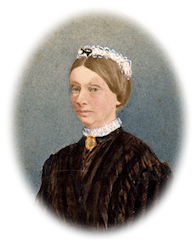
June 25
Mr Grimball still in Town but expected to day, he sent me a letter from Mary Wilcocks about Mrs McAllister, Mrs Butler’s daughter. Her health is in such a critical state that it was thought proper to inform her Mother. She was dreadfully distressed, and at once said she would be glad to go on to the North to see her daughter.—Mr Grimball will go with her to Richmond to get her through.—if possible. This breaks up our pleasant housekeeping, but I am very glad we are here and able to have Papa with us, for he is very feeble, and much changed by his troubles and his age.—
Mr Wilkins is fortunate in getting a small house containing 4 rooms for $15 per Month where she will live with her daughters more comfortably, and she thinks more reasonably, than boarding.—
Gabriella and Charlotte were confirmed in Charleston just before we left there and last Sunday it being Communion Sunday I had the great comfort of having my 3 daughters with me partaking of that Sacrament.—I pray that they may earnestly walk in a Christian life.
The Battle near Richmond is a glorious victory for us we have met with great losses in the lives of valuable young men but this with the signal repulse on James Island are very telling in shortening the war.—Letters from Mr Grimball from Richmond, Mrs Butler still there hoping to get through. The Rail Road had been torn up and if she succeeds in getting through she will have to ride two days in a carriage to Fredricksburg.—
We are getting on here well enough I think now we need not have left Charleston at all, but the Change will be of great service to all of us and already has done Gabriella a great deal of good. William has made another unsuccessful effort to obtain a Commission that way to distinction is evidently closed to him, and we may just as well reconcile ourselves to it. I feel very anxious about John, he wrote to his Father asking for money and was sent a letter containing $50. which he never received and as he was put to inconvenience by it we are quite annoyed.—
He was at Atlanta Georgia getting Ordinance stores for the Gun Boat.—
A Diary From Dixie
June 25, 2022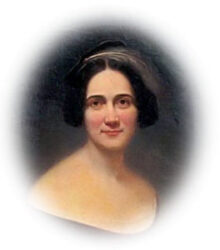
June 25th.–I forgot to tell of Mrs. Pickens’s reception for General Hampton. My Mem dear, described it all. “The Governess” (“Tut, Mem! that is not the right name for her–she is not a teacher.” “Never mind, it is the easier to say than the Governor’s wife.” “Madame la Gouvernante” was suggested. “Why? That is worse than the other!”) ” met him at the door, took his crutch away, putting his hand upon her shoulder instead. “That is the way to greet heroes,” she said. Her blue eyes were aflame, and in response poor Wade smiled, and smiled until his face hardened into a fixed grin of embarrassment and annoyance. He is a simple-mannered man, you know, and does not want to be made much of by women.
The butler was not in plain clothes, but wore, as the other servants did, magnificent livery brought from the Court of St. Petersburg, one mass of gold embroidery, etc. They had champagne and Russian tea, the latter from a samovar made in Russia. Little Moses was there. Now for us they have never put their servants into Russian livery, nor paraded Little Moses under our noses, but I must confess the Russian tea and champagne set before us left nothing to be desired. “How did General Hampton bear his honors?” “Well, to the last he looked as if he wished they would let him alone.”
Met Mr. Ashmore fresh from Richmond. He says Stonewall is coming up behind McClellan. And here comes the tug of war. He thinks we have so many spies in Richmond, they may have found out our strategic movements and so may circumvent them.
Mrs. Bartow’s story of a clever Miss Toombs. So many men were in love with her, and the courtship, while it lasted, of each one was as exciting and bewildering as a fox-chase. She liked the fun of the run, but she wanted something more than to know a man was in mad pursuit of her; that he should love her, she agreed, but she must love him, too. How was she to tell ? Yet she must be certain of it before she said “Yes.” So, as they sat by the lamp she would look at him and inwardly ask herself, “Would I be willing to spend the long winter evenings forever after sitting here darning your old stockings?” Never, echo answered. No, no, a thousand times no. So, each had to make way for another.
Woolsey Family during the War.
June 25, 2022
Eliza Woolsey Howland’s Journal.
. . . June 25th. General Van Vliet says that if I want to go to the front at any time and will send him word, he will have his wagon meet me and take me over to J’s camp. This morning Dr. Bigelow came back to our boat from the front.
Village Life in America
June 24, 2022
June.–Anna and I had a serenade last night from the Academy Glee Club, I think, as their voices sounded familiar. We were awakened by the music, about 11 P.M., quite suddenly and I thought I would step across the hall to the front chamber for a match to light the candle. I was only half awake, however, and lost my bearings and stepped off the stairs and rolled or slid to the bottom. The stairs are winding, so I must have performed two or three revolutions before I reached my destination. I jumped up and ran back and found Anna sitting up in bed, laughing. She asked me where I had been and said if I had only told her where I was going she would have gone for me. We decided not to strike a light, but just listen to the singing. Anna said she was glad that the leading tenor did not know how quickly I “tumbled” to the words of his song, “O come my love and be my own, nor longer let me dwell alone,” for she thought he would be too much flattered. Grandfather came into the hall and asked if any bones were broken and if he should send for a doctor. We told him we guessed not, we thought we would be all right in the morning. He thought it was Anna who fell down stairs, as he is never looking for such exploits in me. We girls received some verses from the Academy boys, written by Greig Mulligan, under the assumed name of Simon Snooks. The subject was, “The Poor Unfortunate Academy Boys.” We have answered them and now I fear Mrs Grundy will see them and imagine something serious is going on. But she is mistaken and will find, at the end of the session, our hearts are still in our own possession.
When we were down at Sucker Brook the other afternoon we were watching the water and one of the girls said, “How nice it would be if our lives could run along as smoothly as this stream.” I said I thought it would be too monotonous. Laura Chapin said she supposed I would rather have an “eddy” in mine.
We went to the examination at the Academy today and to the gymnasium exercises afterwards. Mr. Noah T. Clarke’s brother leads them and they do some great feats with their rings and swings and weights and ladders. We girls can do a few in the bowling alley at the Seminary.
Rebel War Clerk
June 24, 2022
JUNE 24th.—Gen. Lee’s plan works like a charm! Although I have daily orders from Mr. Randolph to send persons beyond our lines, yet the precautions of Lee most effectually prevent any spies from knowing anything about his army. Even the Adjutant-General, S. Cooper, don’t know how many regiments are ordered into Virginia, or where they are stationed. Officers returning from furlough, cannot ascertain in the Adjutant-General’s office where their regiments are! They are referred to me for passports to Gen. Lee’s headquarters. No man with a passport from Gen. Winder, or from his Provost Marshal, can pass the pickets of Gen. Lee’s army. This is the harbinger of success, and I predict a career of glory for Lee, and for our country. There are some vague rumors about the approach of Stonewall Jackson’s army; but no one knows anything about it, and but few believe it. Recent Northern papers say he is approaching Winchester, and I see they are intrenching in the valley to guard against his terrible blows. This is capital! And our people are beginning to fear there will be no more fighting around Richmond until McClellan digs his way to it. The moment fighting ceases, our people have fits of gloom and despondency; but when they snuff battle in the breeze, they are animated with confidence. They regard victory as a matter of course; and are only indignant at our long series of recent reverses, when they reflect that our armies have so seldom been led against the embattled hosts of the enemy.
Downing’s Civil War Diary.–Alexander G. Downing.
June 24, 2022
Tuesday, 24th–Our camp was inspected today by the brigade commander. Colonel Hare arrived in camp today. The boys were very glad to see him come back to the regiment.
War Diary of Luman Harris Tenney.
June 24, 2022
24th. Tuesday. Arose before sunrise 3:45 A. M. Took the horses out to graze. Archie and I went with horses to an oat field up on a hill beyond the pickets. Good feed for the horses. Detachment went ahead to Neosho at 7 A. M. Entered N. and encamped a little after noon on the ground where the militia was surprised. An alarm in the night. False.
Robert M. McGill
June 24, 2022
Tuesday, 24th.—Brother J. H. has permission to take us home with him to Mouse Creek. Left Knoxville 11 A. M. ; arrived Mouse Creek 2 P. M.
(Note: picture is of an unidentified Confederate soldier.)
A Diary From Dixie
June 24, 2022
June 24th.–Mr. Chesnut, having missed the Secessionville ¹ fight by half a day, was determined to see the one around Richmond. He went off with General Cooper and Wade Hampton. Blanton Duncan sent them for a luncheon on board the cars,–ice, wine, and every manner of good thing.
In all this death and destruction, the women are the same–chatter, patter, clatter. “Oh, the Charleston refugees are so full of airs; there is no sympathy for them here!” “Oh, indeed! That is queer. They are not half as exclusive as these Hamptons and Prestons. The airs these people do give themselves.” “Airs, airs,” laughed Mrs. Bartow, parodying Tennyson’s Charge of the Light Brigade. “Airs to the right of them, Airs to the left of them, some one had blundered.” “Volleyed and thundered rhymes but is out of place.”
The worst of all airs came from a democratic landlady, who was asked by Mrs. President Davis to have a carpet shaken, and shook herself with rage as she answered, “You know, madam, you need not stay here if my carpet or anything else does not suit you.”
John Chesnut gives us a spirited account of their ride around McClellan. I sent the letter to his grandfather. The women ran out screaming with joyful welcome as soon as they caught sight of our soldiers’ gray uniforms; ran to them bringing handfuls and armfuls of food. One grayheaded man, after preparing a hasty meal for them, knelt and prayed as they snatched it, as you may say. They were in the saddle from Friday until Sunday. They were used up; so were their horses. Johnny writes for clothes and more horses. Miss S. C. says: “No need to send any more of his fine horses to be killed or captured by the Yankees; wait and see how the siege of Richmond ends.” The horses will go all the same, as Johnny wants them.
______
¹ The battle of Secessionville occurred on James Island, in the harbor of Charleston, June 16, 1862.
Journal of Surgeon Alfred L. Castleman.
June 24, 2022
24th.–To-day General Hooker advanced his picket lines about one mile nearer to Richmond, and the incessant roar of artillery, with the constant volleys of musketry and the cheers of fighting men, wafted to us from beyond the Chickahominy, tell that it is being done, not without cost of the blood and suffering of brave and good men. At night we hear that Hooker’s movement has been a success, crowned with a victory. General Hooker rarely undertakes a thing which he does not accomplish; but I fear our loss has been heavier than is now admitted. These frequent reports from our Commander-in-Chief, of great victories with little loss, subsequently contradicted by the real facts, begin to shake the confidence of a large portion of the army in his infallibility.
Rebel War Clerk
June 23, 2022
JUNE 23d.—And Gen. Johnston, I learn, has had his day. And Magruder is on “sick leave.” He is too open in his censures of the late Secretary of War. But Gen. Huger comes off scot-free; he has always had the confidence of Mr. Benjamin, and used to send the flag of truce to Fortress Monroe as often as could be desired.
Downing’s Civil War Diary.–Alexander G. Downing.
June 23, 2022
Monday, 23d–Nothing of importance. I went out to the branch a mile from camp to do my washing. Burtis Rumsey of our company has been sick for about two weeks and he begged me to take two of his shirts along and wash them for him, so I did. I used a small camp kettle which the company cook has set aside for boiling clothes. Some of the boys in the company hire colored women to wash their clothes. I prefer to do my own washing.
War Diary of Luman Harris Tenney.
June 23, 2022
23rd. Monday. According to orders started for Neosho at 6 A. M. Up early and flew around to get chores done. Our road lay mostly through the woods. After 8 miles ride, mail came. A letter from good Fannie. Met Co. “A” and “D” from Sherwood, three miles north of Neosho. Met some Kansas Sixth who had fallen in with a band of 400 rebels on the road to Granby. Council of War–Burnett wanting to go on with 200 men–Ratcliff not thinking it best. Bivouacked for the night in open air.
Robert M. McGill
June 23, 2022
Saturday, 23d.—Feel some better this morning. Brother J. H. Magill came up from Mouse Creek to see me to-day. In afternoon, regiment passed through Knoxville, and Brother Tom is sent to this hospital, sick. J. H. got him in the same room with me. Got two letters to-day; one from Cousin Fannie Lowry, the other from 3, 3, 1.
(Note: picture is of an unidentified Confederate soldier.)